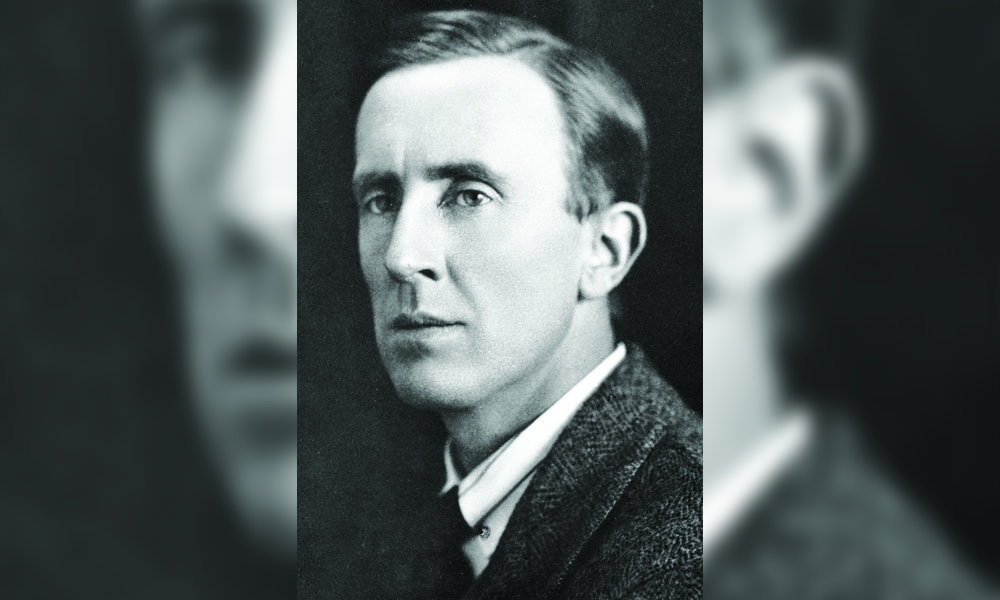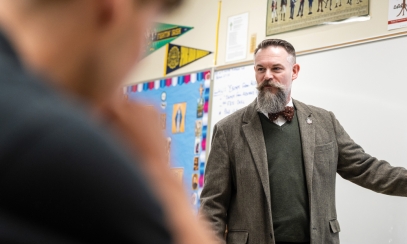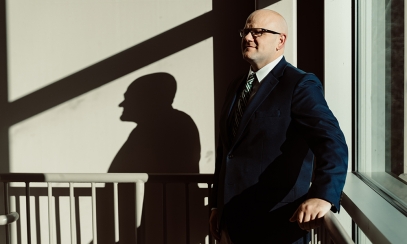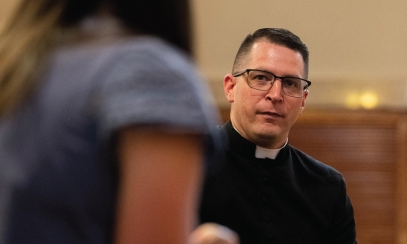
Tolkien and fatherhood
Getting your Trinity Audio player ready...Since it is the month of St. Joseph, March is the perfect time to reflect on models of faithful Catholic fatherhood from throughout the Church’s history. A well-known contemporary example is J.R.R. Tolkien. In stark contrast to St. Joseph, from whom not a single word has survived to the present, Tolkien has endowed us with thousands of pages of stories, including The Hobbit and The Lord of the Rings, as well as a vast collection of letters to his publishers, fans, friends, and family. Many of these letters provide insight into the thought and writing process behind Tolkien’s stories, but others show him as a friend, a husband, and a father.
Since it is the month of St. Joseph, March is the perfect time to reflect on models of faithful Catholic fatherhood from throughout the Church’s history. A well-known contemporary example is J.R.R. Tolkien. In stark contrast to St. Joseph, from whom not a single word has survived to the present, Tolkien has endowed us with thousands of pages of stories, including The Hobbit and The Lord of the Rings, as well as a vast collection of letters to his publishers, fans, friends, and family. Many of these letters provide insight into the thought and writing process behind Tolkien’s stories, but others show him as a friend, a husband, and a father.
Tolkien and his wife Edith were parents of four, and a large portion of his surviving correspondence is addressed to their children, who grew up in England during the period after World War I and leading into World War II. A number of Tolkien’s letters to them have been published, dating from their childhood until his own death in 1973, and they touch on everything from cash allowances, to romance and marriage, to the looming threat of Hitler in Germany. They paint a portrait of Tolkien as a loving and good-humored father who wishes to support and guide his family in any way he can.
His letters are full of insight and advice on just about every subject under the sun. It sometimes took him several late nights and multiple drafts to finish a single letter that would convey what he wanted to say. He did so because he understood that a father is a “divinely appointed source of wisdom and counsel” for his children. As he wrote to his son Michael, “If the young man cannot suck a little wisdom from his father, then he is a fool, or the father is (not uncommon), or both are …”
As a source of wisdom, Tolkien understood his responsibilities as a father to include nurturing his family’s spiritual growth. He writes from the perspective of a deeply held Catholic faith, which informs his entire worldview and explicitly colors the kind of support that he provides. He frequently says “God bless you,” assures his children that he is praying for them, and asks for their prayers in return. He admits his own weaknesses, draws lessons from his faults, and views life’s difficulties from an eternal perspective. Above all, with language as beautiful and moving as that of any saint, he never fails to point them to Jesus Christ in the Eucharist as the fulfillment of all their earthly desire and their source of greatest strength.
Tolkien presents an understanding of fatherhood that is rooted in service. They express a Catholic perspective on marriage and family life that is patterned on the self-giving love of Jesus for his bride, the Church. Well before the Second Vatican Council, Tolkien lived and wrote from a belief in the council’s teaching that man “cannot fully find himself except through a sincere gift of himself.” In an era and culture that does so much to promote self-indulgence and to discourage self-sacrifice, this perspective has become increasingly counter-cultural, and only a conscious effort to understand and embrace it offers the possibility of realizing it in our families, the Church, and the world.
In the hope of realizing this Catholic vision of fatherhood more fully, I invite all current and future Catholic fathers to join me for the Tolkien & Fatherhood Retreat at the St. Francis Retreat Center this spring. The retreat will run on Saturday, March 22nd, Friday, April 25th, and Saturday, May 17th. We will read three of Tolkien’s letters to his son Michael, reflect on and discuss them together, and be nourished by adoration, confession, and Mass. All men – married or single, lay or ordained – are welcome, and I encourage fathers to bring their teenage sons. We will all benefit from reflecting on Tolkien’s example of fatherhood, as well as from sharing our own experiences and insights as sons, husbands, and fathers with one another.



